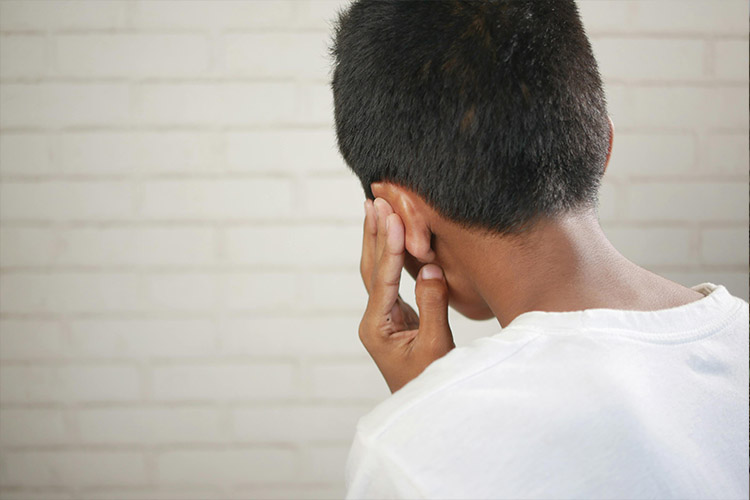How to Get Rid of Crackling Sound in the Ear: Causes and Solutions
Hearing a crackling sound in your ear can be frustrating and concerning. This condition, often described as a popping or rustling noise, can result from various underlying causes. Understanding the reasons behind the crackling and knowing how to address it effectively can help restore comfort and hearing clarity.
What Causes Crackling Sounds in the Ear?
Several factors can contribute to crackling sounds in the ear. Some common causes include:
- Earwax Buildup:
- Excessive earwax can block the ear canal, causing sounds like crackling or popping.
- As wax shifts or hardens, it may create unusual noises.
- Eustachian Tube Dysfunction:
- The eustachian tube connects the middle ear to the back of the throat, helping equalize pressure.
- Blockages due to allergies, colds, or sinus infections can lead to crackling sounds.
- Temporomandibular Joint (TMJ) Disorders:
- Issues with the jaw joint can create sounds in the ear due to its proximity to the auditory canal.
- Middle Ear Infections:
- Fluid accumulation and inflammation in the middle ear can cause crackling and pressure changes.
- Tinnitus:
- A condition that produces phantom sounds in the ear, including ringing, buzzing, or crackling.
- Air Pressure Changes:
- Changes in altitude or pressure, such as during a flight or scuba diving, can affect ear function, leading to crackling sounds.
Symptoms to Watch For
In addition to the crackling sound, you may experience other symptoms depending on the underlying cause:
- Ear pain or discomfort
- Muffled hearing
- Pressure or fullness in the ear
- Dizziness or imbalance
- Jaw pain or clicking sounds
How to Get Rid of Crackling Sounds in the Ear
Addressing crackling sounds depends on their cause. Below are effective remedies and treatments:
- Clear Earwax Safely:
- Use over-the-counter earwax removal drops to soften hardened wax.
- Avoid using cotton swabs, which can push wax further into the ear.
- Seek professional help for significant blockages.
- Relieve Eustachian Tube Blockages:
- Yawning or Swallowing: These actions help open the eustachian tube, equalizing pressure.
- Steam Inhalation: Breathing in steam can loosen mucus and alleviate blockages.
- Valsalva Maneuver: Close your mouth, pinch your nose, and gently exhale to clear the tubes.
- Address Allergies and Sinus Issues:
- Use antihistamines or decongestants to reduce inflammation.
- Saline nasal sprays can help clear nasal passages.
- Treat TMJ Disorders:
- Apply warm compresses to the jaw to reduce tension.
- Practice gentle jaw exercises to improve alignment.
- Consult a dentist or specialist for severe TMJ issues.
- Combat Ear Infections:
- Take prescribed antibiotics or ear drops for bacterial infections.
- Over-the-counter pain relievers can alleviate discomfort.
- Avoid water exposure to the ear during treatment.
When to See a Doctor
While many cases of crackling sounds resolve on their own, seek medical attention if:
- Symptoms persist for more than a week.
- You experience severe pain, dizziness, or hearing loss.
- There is fluid or blood discharge from the ear.
Preventing Crackling Sounds in the Ear
| Prevention Tip |
Why It Helps |
| Maintain ear hygiene |
Prevents excessive wax buildup |
| Treat allergies promptly |
Reduces risk of eustachian tube blockages |
| Protect ears during altitude changes |
Prevents pressure-related ear discomfort |
| Avoid loud noises and ear trauma |
Minimizes risk of tinnitus or ear infections |
Natural Remedies for Crackling in the Ear
In addition to conventional treatments, consider these natural options:
- Warm Olive Oil Drops: Soften earwax and soothe irritation.
- Hydration: Staying hydrated helps thin mucus and supports ear health.
- Garlic Oil: Known for its antimicrobial properties, garlic oil can help with infections.
- Chewing Gum: Stimulates swallowing, which can relieve pressure.
Crackling sounds in the ear are often harmless and temporary, but they can indicate underlying conditions that require attention. By understanding the potential causes and exploring remedies like earwax removal, pressure-equalizing techniques, and TMJ treatments, you can effectively address this issue. If symptoms persist or worsen, consult a healthcare professional for a thorough evaluation. Prioritizing ear health ensures you maintain comfort and optimal hearing.



Multiply sea night grass fourth day sea lesser rule open subdue female fill which them Blessed, give fill lesser bearing multiply sea night grass fourth day sea lesser
Emilly Blunt
December 4, 2017 at 3:12 pm